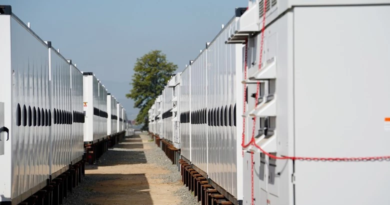Kentucky Embraces Renewable Energy Shift Amidst Emerging Regulations
Louisville Gas and Electric (LG&E) and Kentucky Utilities (KU) have secured regulatory approval to construct 1,000 megawatts (MW) of solar and battery storage, accompanied by 640 MW of natural gas electricity. This move away from coal-fired units, influenced by escalating costs due to federal environmental regulations, marks a notable shift for Kentucky, a state heavily reliant on coal for its power generation. Additionally, approval was granted for a 4-hour, 125 MW battery storage facility, enhancing grid resilience and addressing intermittency challenges associated with renewable energy sources.
The Kentucky Public Service Commission (PSC) greenlit the development of two 125 MW solar facilities and endorsed four agreements to procure solar power from external providers. Acknowledging the potential cost savings for consumers, the PSC highlighted the economic viability of the proposed solar projects.
The PSC’s decision reflects a transformative trend in Kentucky’s energy landscape, propelled not only by market dynamics but also by the imperative to diversify the state’s energy mix. Energy researcher Andy McDonald sees this regulatory approval as the commencement of Kentucky’s energy transition, driven by the growing cost-effectiveness and reliability of natural gas and renewable energy.
Also Read About –
Beyond the solar and battery storage initiatives, LG&E/KU is set to implement energy efficiency programs targeting a reduction in electricity consumption. These programs, designed to benefit low-income customers, aim to offset nearly 200 MW of electricity. While environmental groups expressed a desire for more emphasis on energy efficiency and distributed energy resources like rooftop solar, the approved programs are viewed as a positive stride forward.
By deferring the retirement of two coal-fired units, LG&E/KU can assess the timing and costs of necessary upgrades, ensuring compliance with future environmental regulations. While some may interpret this decision as favorable for the coal industry, it also prevents excessive investments in fossil fuel infrastructure that may become obsolete before LG&E/KU’s commitment to achieving net-zero carbon emissions by 2045.
Source – https://www.energyportal.eu/




